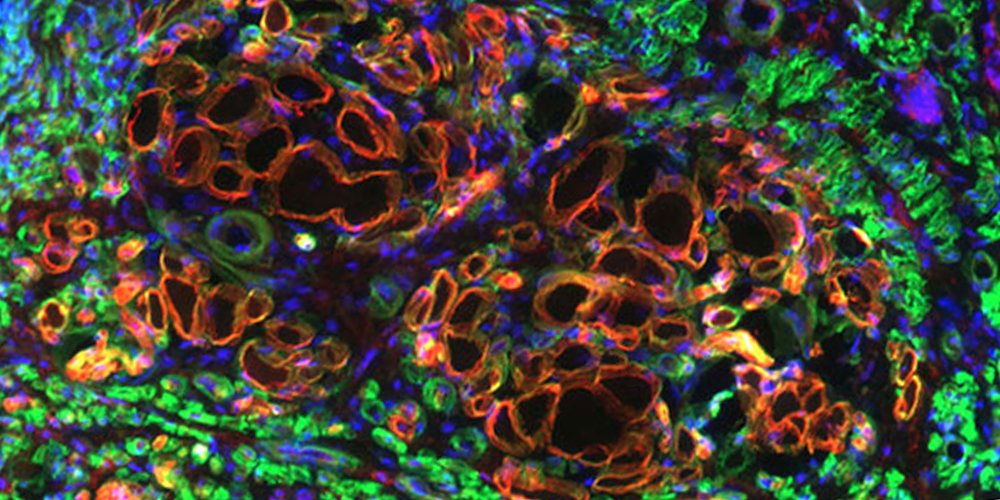Hiroshi Nakato steps into role as Developmental Biology Center head after years of service by David Zarkower.

David Zarkower was there from the beginning. When the Developmental Biology Center launched in the mid 1990s, Zarkower joined colleagues looking to build knowledge and research collaborations around our understanding of how cells grow and develop. In addition to years of research with the group, Zarkower also was critical in serving as the Center’s director for more than a decade.
“I was among the first faculty hired when the DBC was established in the mid 1990s, and it provided a great environment in which to launch a career,” says Zarkower. “When we needed a new director in 2009 I felt it was a good time to pay back a little bit of that debt.”
As director, Zarkower worked to grow the reach and research capabilities of the Center, including overseeing the group’s annual symposia and advances in consulting work.
“I’m happy we could continue our wonderful and widely known annual developmental biology symposia, which has continued to bring in top researchers from around the world to share their work and ideas,” Zarkower says. “I also am pleased that we established a bioinformatics consulting service run by Dr. Micah Gearhart to help our faculty be competitive in cutting-edge genetics and genomics work requiring analysis of large datasets.”
Zarkower recently stepped down from his role as director and retired from University faculty this winter. After more than 10 years of leadership from Zarkower, the DBC now looks to Hiroshi Nakato as its newest lead. Nakato is a professor in Genetics, Cell Biology and Development whose research focuses on mechanisms of cell communications during development and regeneration. With its numerous potential applications and fields, he sees the DBC as a great centerpoint for myriad areas of research across the University.
“Developmental biology is at the root of many biological disciplines, including stem cell research, regenerative medicine and cancer biology,” Nakato says. “The DBC provides strong ties to different units on campus and serves as an educational forum for trainees of all levels. With these unique strengths, the DBC will grow further as the field expands and new members with different expertise join us.”
Moving forward, Nakato plans to continue building on the strengths of the Center, including its symposia and consulting services, while expanding its reach beyond the University. With members now at fellow institutions across the Twin Cities metro and Minnesota, he hopes to continue growing these relationships to expand research efforts at peer institutions across the state and beyond.
“We can better draw on this network to promote collaborations and explore hiring opportunities,” he says. “The DBC also promotes undergraduates' participation to cutting-edge developmental biology research. Lastly, I'd like to continue to provide and strengthen the Bioinformatics Consulting Service to enhance genomics studies and stimulate collaborations.”
-Lance Janssen